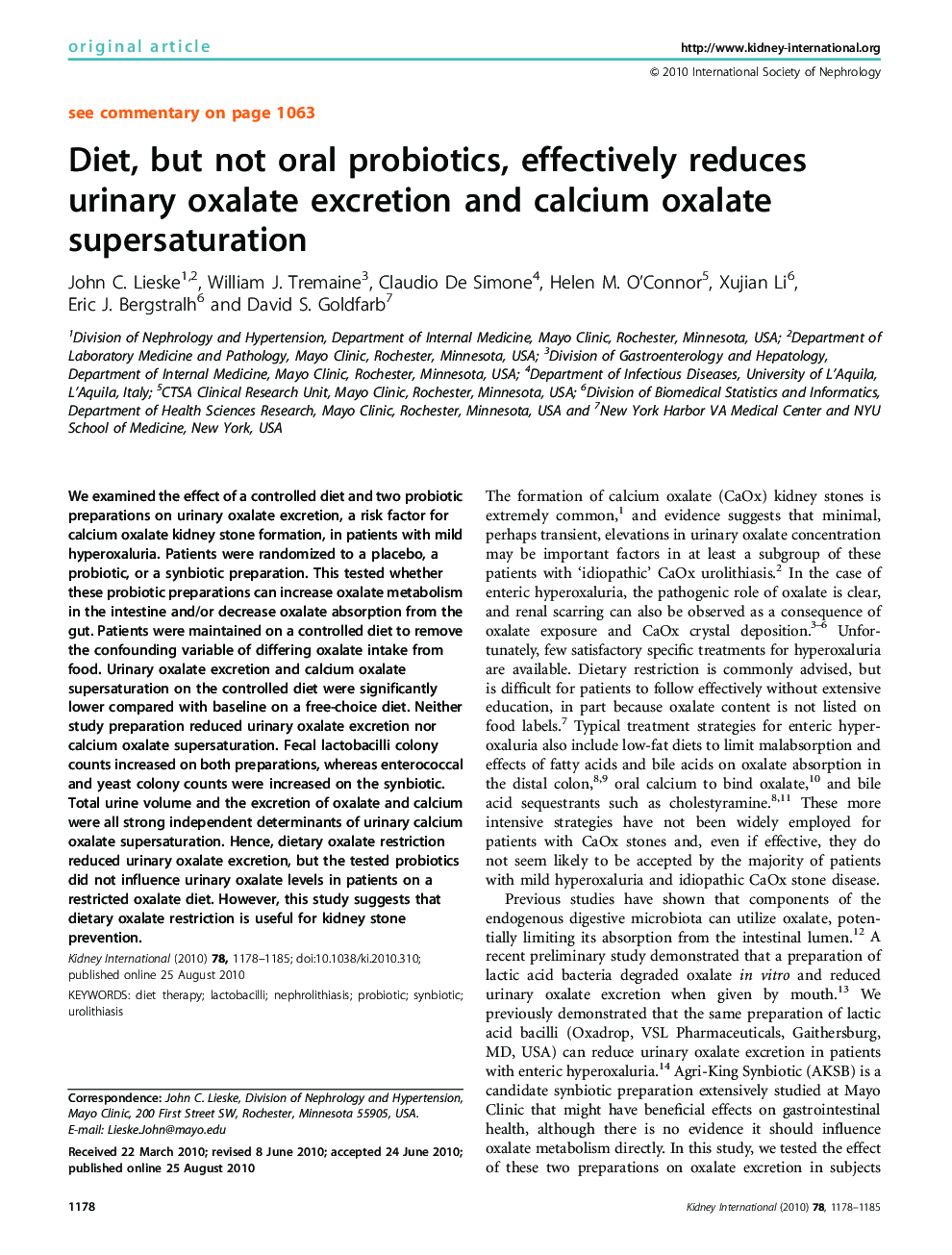| کد مقاله | کد نشریه | سال انتشار | مقاله انگلیسی | نسخه تمام متن |
|---|---|---|---|---|
| 3883385 | 1249418 | 2010 | 8 صفحه PDF | دانلود رایگان |

We examined the effect of a controlled diet and two probiotic preparations on urinary oxalate excretion, a risk factor for calcium oxalate kidney stone formation, in patients with mild hyperoxaluria. Patients were randomized to a placebo, a probiotic, or a synbiotic preparation. This tested whether these probiotic preparations can increase oxalate metabolism in the intestine and/or decrease oxalate absorption from the gut. Patients were maintained on a controlled diet to remove the confounding variable of differing oxalate intake from food. Urinary oxalate excretion and calcium oxalate supersaturation on the controlled diet were significantly lower compared with baseline on a free-choice diet. Neither study preparation reduced urinary oxalate excretion nor calcium oxalate supersaturation. Fecal lactobacilli colony counts increased on both preparations, whereas enterococcal and yeast colony counts were increased on the synbiotic. Total urine volume and the excretion of oxalate and calcium were all strong independent determinants of urinary calcium oxalate supersaturation. Hence, dietary oxalate restriction reduced urinary oxalate excretion, but the tested probiotics did not influence urinary oxalate levels in patients on a restricted oxalate diet. However, this study suggests that dietary oxalate restriction is useful for kidney stone prevention.
Journal: Kidney International - Volume 78, Issue 11, 1 December 2010, Pages 1178–1185